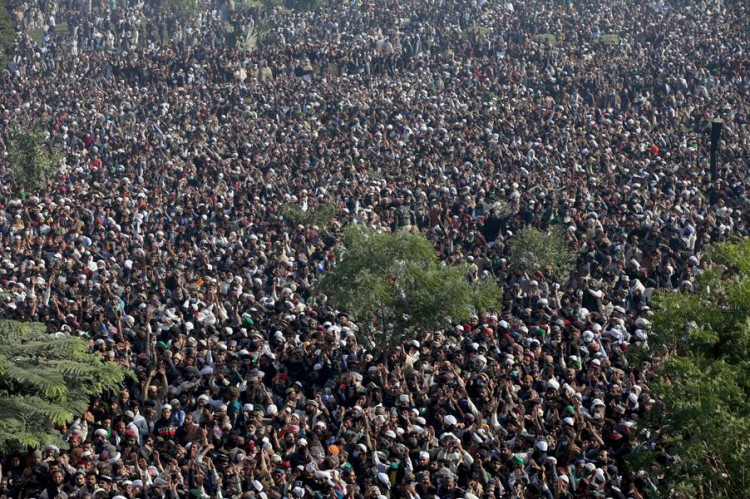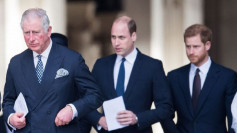A humongous crowd of mourners with no face coverings gathered in Lahore on Saturday for the funeral of radical Pakistani cleric Khadim Hussain Rizvi, defying a government ban on big public gatherings in the face of increasing cases of coronavirus in the country.
The gathering was so massive that Rizvi's coffin could not be properly carried through the crowd to the site prepared for the funeral and had to be placed on a nearby bridge for the prayers, reports say.
Rizvi's Islamist alliance has defended Pakistan's highly contentious blasphemy policy that enforces the maximum punishment of death for anyone who insults Islam.
The hardline leader terrorized Pakistan's religious minorities for years, incited civil unrest, and promoted European countries' destruction in the name of subduing blasphemy.
The 54-year old religious leader died of cardiac arrest Thursday, just days after leading a violent demonstration march to Islamabad against the publication in France of caricatures depicting the Prophet Muhammad.
The protesters briefly clashed with the government's security forces during the rally, one in a series of demonstrations across Pakistan expressing anger over the drawings. No COVID-19 test or autopsy was conducted on the cleric who had spent many years in a wheelchair.
Government officials did not respond to a request for comment about Rizvi's funeral, which caused chaos in Lahore as cellphone services were closed down and major streets barricaded for security reasons. A local official, who requested anonymity, said he estimated that around 300,000 people had attended the event.
Despite his strong influence at stirring sectarian indignation and mobilizing thousands of extremist anti-blasphemy loyalists at a moment's notice, Pakistan's military hailed Rizvi as a "great scholar" and even the Prime Minister himself, Imran Khan, rushed to offer his condolences -- both aware of the power of his advocacy.
The hardline Islamist party gained prominence in Pakistan during the 2018 polls, campaigning on a one-point agenda of protecting the nation's blasphemy law.
In just a couple of years, Rizvi -- well-known for his expletive speeches and dramatic gestures, gained heavy public support and rose to become one of Pakistan's most feared men.
The prophet cartoons published in France triggered widespread demonstrations across Asia and the Middle East, with demands for the boycott of French products.
Based on official data as of Saturday, Pakistan had 2,843 people infected with COVID-19, with 42 deaths in the last 24 hours -- both figures the highest for a single day since July.






